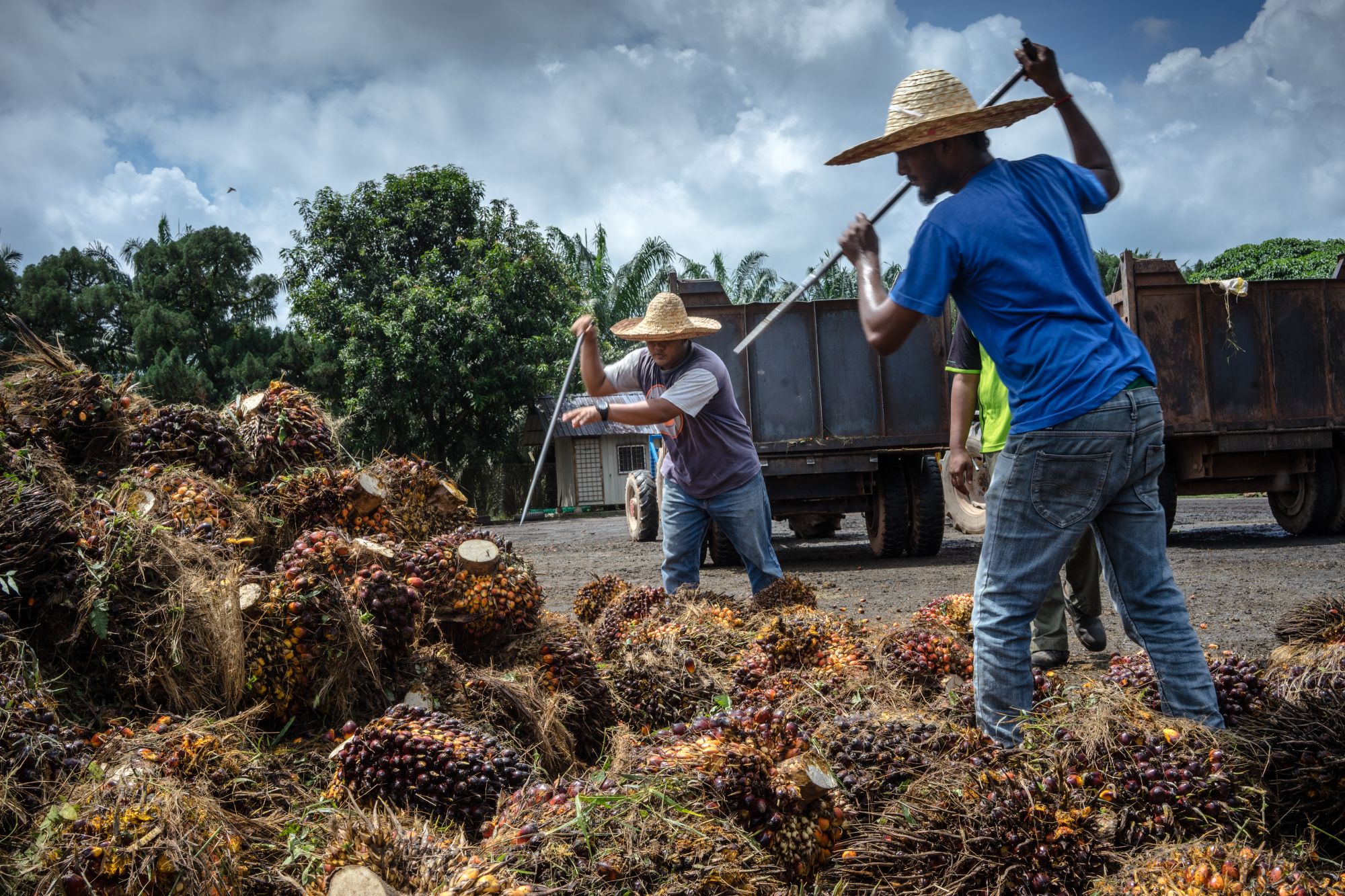Japanese scientists are encouraging Southeast Asia's palm oil producers to chop down trees to help save forests.
Japan International Research Center for Agricultural Sciences and IHI Enviro Corp., a subsidiary of IHI Corp., have developed a way to process scrapped palm trees into methane gas and wood pellets to be sold as feedstock to power generators. The system intends to help palm companies earn income while waiting for new trees to mature and curb their reliance on expanding plantations to boost output.
Concerns about palm oil's environmental impact have prompted the European Union to propose restricting its use in renewable fuels after 2020. Farmers in Malaysia and Indonesia, which account for 85 percent of supply, have been accused of illegally using slash-and-burn methods to clear land for plantations, which destroys rain forests. Producers typically need to replant oil palms after a couple of decades when they become unproductive and plant small areas slowly because they won't get any revenue from those trees for three to five years.



















With your current subscription plan you can comment on stories. However, before writing your first comment, please create a display name in the Profile section of your subscriber account page.